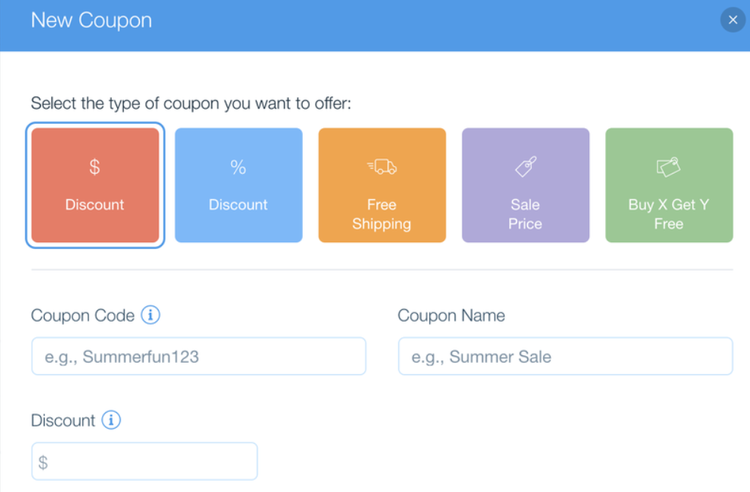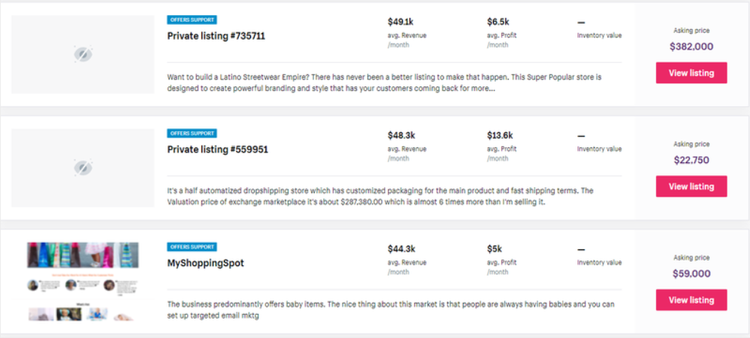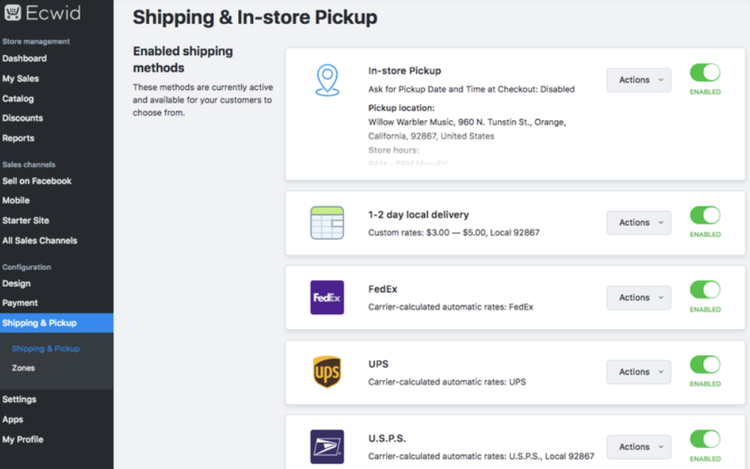Amazon is the gold standard in online retail. Founded by Jeff Bezos in 1994 as an online marketplace for books, it now sells just about everything under the sun.
In recent years, Amazon has placed increasing focus on providing a marketplace where small businesses can sell their products, and firms around the world have flocked to the site to take advantage of this opportunity. But the site has downsides, like high competition, a lack of control, and fees.
Consequently, you may be interested in websites like Amazon -- or ones that are even better than Amazon -- to sell your products. Fortunately, Amazon isn't the only game in town.
Here's what you must know about Amazon's impact on the e-commerce business, and how to choose a site that will suit your needs -- or create your own.
Here are the 6 top alternatives to Amazon:
- Etsy
- Made Trade
- Better World Books
- eBay
- Grove Collaborative
- Thrive Market
What to look for in a great Amazon alternative
Online retailers have to be great in order to compete with retail behemoth Amazon, but that’s not enough for most consumers. If you’re looking for an Amazon alternative, you must choose a site that is not only exceptional at selling online but can also fill a few other needs that Amazon doesn’t.
1. Transparency
Amazon is a big company, which provides some downsides -- customer support won’t be personally customized for your small business -- but also includes some benefits that any viable alternative will need to match.
For example, you can be confident that Amazon will perform as advertised, and they are transparent when it comes to their terms of use. If you choose an Amazon alternative, verify that it is trustworthy for buyers and sellers and has clear terms of usage. Ensure there is payment processing accountability, and that you will get adequate support to address any issues you encounter.
2. User experience
Managing the user experience is vital, so any Amazon alternative will need to help you with this aspect of your business. It should provide a seamless user interface that applies to both buyers and sellers, so it’s a good experience for both sides.
The site should provide support resources and help troubleshoot problems. One advantage an Amazon alternative may be able to offer is receiving and implementing feedback from their clients (you).
3. Sustainability
You may be interested in ethical alternatives to Amazon, particularly when it comes to the environment. Sustainability is of increasing importance for sellers these days, and demand is rising for eco-friendly products and services. You may value a platform with environmentally conscious internal processes as part of your brand. If so, explore online retailers that make this an emphasis.
Top 6 Amazon alternatives for selling online
So where can you go to sell your wares if you don’t want to use Amazon? Although the company dominates the online retail market, you can choose from numerous alternatives. Here are six of the top options.
1. Etsy
Most people have heard of Etsy, which is similar to Amazon in that it aims to make it easy for small businesses to sell goods online. Etsy places a particular emphasis on showcasing small businesses, whereas Amazon allows the big dogs to dominate listings.
Etsy has a global reach and features the works of artisans in particular. It is socially conscious when it comes to public policy that helps small businesses, and its company practices are eco-friendly for those who are concerned about sustainability.
2. Made Trade
Made Trade is another eco-friendly site that features ethical domestic products, particularly those for the kitchen, bedrooms, and other home use. They are “fair trade” products that are made in the United States, and the site prominently features businesses owned by women and people of color. The company donates a portion of its profits to environmental causes.
3. Better World Books
Amazon started out as an online bookstore, so perhaps Better World Books is the closest Amazon alternative at heart. This e-commerce store sells used books at competitive prices, and a percentage of its profits go toward improving literacy.
The site allows users to shop through books from local bookstores, supporting these small businesses. In addition to supporting literacy and libraries, the company also donates to environmental efforts.
4. eBay
Before Amazon became the dominant force in online retail, there was eBay. This site was initially focused on auctions before transitioning to a model of online shopping like Amazon. eBay offers a range of goods, from electronics to shoes to antiques, just like Amazon.
The site still allows users to bid on items in hopes of scoring a deal, which is not possible on Amazon. Internally, eBay has adopted sustainable practices and partners with organizations on environmental causes.
5. Grove Collaborative
Grove Collaborative is a certified B Corporation, which means it meets high standards for social and environmental performance, transparency, and legal accountability. The site offers vendors a place to sell household and personal care products that are eco-friendly and nontoxic.
It also takes an approach to shopping that seeks a reduced carbon footprint. Subscriptions are available, customers can shop at their own pace.
6. Thrive Market
Thrive Market is a community-based online store that takes a membership approach. The site focuses on sustainable and organic products -- particularly lifestyle and dietary goods. It has carbon-neutral shipping approaches. This site is ideal for small businesses who sell healthy and organic products locally and want to reach a larger audience through a site that shares their values.
Our top 3 picks for building your own e-commerce store
But what if rather than settling for one of the many Amazon substitutes, you’re looking to set up your own online store? The top e-commerce platforms are capable of doing a lot of things you’ll need as an online seller, such as inventory management, shipping, and payment processing. Here are our top three picks for e-commerce software options for small businesses.
1. Wix eCommerce
Wix eCommerce's advantage is that it is easy to use. The site was designed to allow small business owners with no coding experience to quickly create a professional-looking e-commerce store, and then be able to customize it to their specifications by simply dragging and dropping items. You'll need to pay to host the site and to remove Wix ads, but at $23/month, most can afford it.

Wix eCommerce lets you create coupons to convert more shoppers into buyers. Image source: Author
Read The Ascent’s full Wix eCommerce review
2. Shopify
For those who want to get deeply involved with social media, Shopify is probably your best choice. Beyond being a fundamentally simple and professional e-commerce platform, it also makes it easy to sell on Pinterest, Facebook, and Instagram. There is no free version available, but at $29/month, it is affordable for most.

If you don’t want to start from scratch, Shopify allows you to buy an existing e-commerce site. Image source: Author
Read The Ascent’s full Shopify review
3. Ecwid
If you're only in the market for a free platform, Ecwid is your best choice. This is a good option for first-time sellers and small businesses launching their first online store. It's easy to use, and rather than create a new website from scratch, you just insert the Ecwid plug-in into an existing site. In addition to the free version, you can sign up for three different paid tiers that offer more advanced e-commerce functions.

Ecwid allows you to customize your shipping options and automate some functions. Image source: Author
Read The Ascent’s full Ecwid review
Choose software with good analytics
In e-commerce, tracking the data is absolutely critical to success. By gathering analytics on metrics such as cost per acquisition, customer lifetime value, and customer acquisition cost, you’ll be able to make important decisions about the future of your business -- such as if you should implement drop shipping to save on costs or if you should offer a premium version of your product.
As a result, pay special attention to custom reporting functions in the software you test out. Do they offer enough detail to help you make these decisions? Are these tools offered standard or do you need to pay a lot extra for this vital feature? Answers to these questions should factor heavily in your final decision on which software to purchase.
Our Small Business Expert
We're firm believers in the Golden Rule, which is why editorial opinions are ours alone and have not been previously reviewed, approved, or endorsed by included advertisers. The Ascent, a Motley Fool service, does not cover all offers on the market. The Ascent has a dedicated team of editors and analysts focused on personal finance, and they follow the same set of publishing standards and editorial integrity while maintaining professional separation from the analysts and editors on other Motley Fool brands.